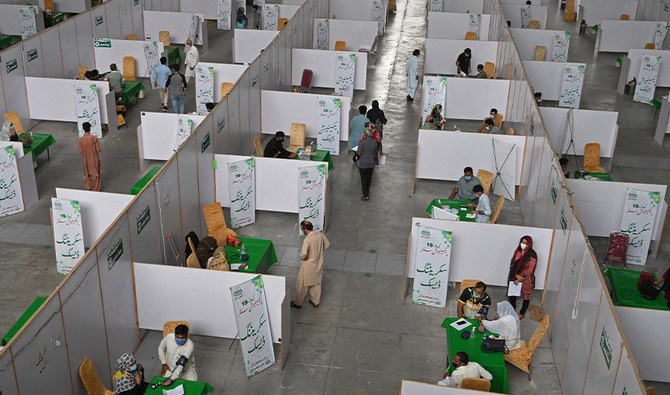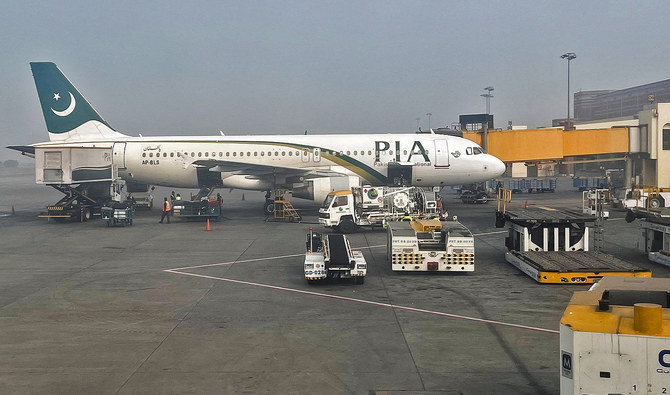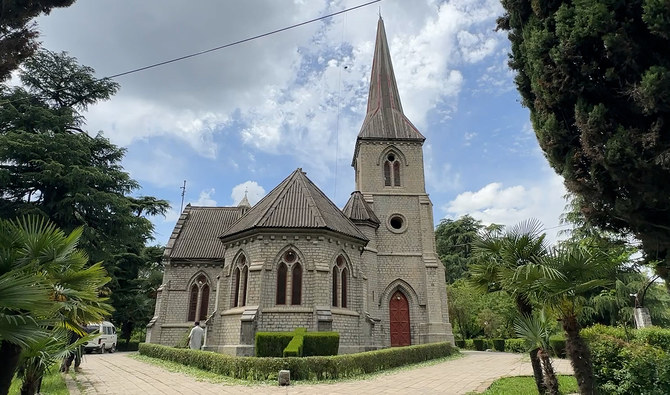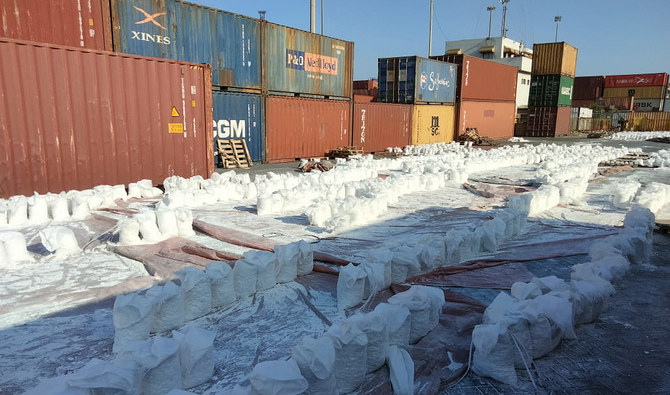LAHORE: Punjab Health Minister Dr. Yasmin Rashid on Tuesday denied media reports that the country’s most densely populated province was running short of COVID-19 vaccines and had taken a decision to halt its immunization campaign for two days.
“There is no vaccination shortage throughout the province,” she said after holding a meeting with senior provincial health officials. “About 1.6 million shots were recently supplied to various districts, and the deputy commissioner of Lahore has 25,000 doses with him.”
Rashid informed the provincial health authorities were inoculating over 240,000 people across the province on a daily basis.
She added the vaccination drive at district headquarter hospitals was continuing 24/7.
The provincial health minister said all deputy commissioners were directed to increase the momentum of the immunization campaign in their respective areas and do their best to meet the prescribed targets.
“People below the age of 40 who plan to travel abroad can receive AstraZeneca vaccine on the instruction of NCOC [National Command and Operation Center] at Expo Center Lahore from June 16,” Rashid continued. “All deputy commissioners in other districts have been asked to follow suit.”
She added that the provincial administration was also in possession of 13,000 doses of Pfizer vaccine which would be administered to people suffering from serious ailments on a priority basis.
Earlier in the day, Hammad Raza, a Punjab Health Department spokesperson, told Arab News there was no report of vaccination shortage in the province, adding that Punjab was in “surplus” when it came to COVID-19 jabs.
Asked about long queues outside some of the vaccination centers, he said it was only happening at facilities offering AstraZeneca vaccine.
“People who want to travel abroad usually seek AstraZeneca shots,” Raza explained. “The provincial administration was in the process of devising a proper protocol for that. Things should get better now since we have received guidelines from the federation today and no one will have to wait to get these shots in the coming days.”
Health chief of Pakistan’s most densely populated province denies running out of COVID-19 vaccines
https://arab.news/vydtr
Health chief of Pakistan’s most densely populated province denies running out of COVID-19 vaccines

- Dr. Yasmin Rashid says about 1.6 million doses of coronavirus vaccines have been recently supplied to districts across the province
- Health authorities in Punjab will start administering AstraZeneca shots to people less than 40 years of age who want to travel abroad from June 16
PIA operations to Dubai, Sharjah ‘severely affected’ due to UAE rains

- Extreme weather in UAE expected to continue until Friday, authorities have issued safety advisories for residents
- Latest rains come two weeks after Dubai was hit by unprecedented storms that paralyzed the emirate for days
KARACHI: Pakistan’s national carrier PIA said on Thursday its operations to Dubai and Sharjah had been “severely affected” by a latest spell of heavy rains in the UAE and would remain suspended until further notice.
UAE residents woke up to heavy rain, thunderstorms, and strong winds on Thursday morning, as predicted by the UAE’s National Center of Meteorology (NCM) on Wednesday, May 1. The extreme weather is expected to continue until Friday, May 3, and authorities have issued safety adviseries for residents.
The latest rains come two weeks after Dubai was hit by unprecedented storms that paralyzed the emirate for days.
“Air operations to Dubai and Sharjah are severely affected due to heavy rains in UAE,” PIA said in a statement. “Air operations of other airlines including PIA will remain suspended for the time being.”
The airline said passengers of affected flights should contact PIA call center 786 786 111 for their flight information and alternative arrangements.
Last month, Dubai had to endure the towering task of clearing its water clogged roads and drying out flooded homes after a record storm saw a year’s rainfall in a day. Dubai International Airport, a major travel hub, also struggled for days to clear a backlog of flights and many roads were still flooded in the aftermath of the deluge.
The rains were the heaviest experienced by the United Arab Emirates in the 75 years that records have been kept. They brought much of the country to a standstill and caused significant damage, flooding trapped residents in traffic, offices and homes and overrunning malls and roads.
In scenic Abbottabad, an old church tells a tale of religious unity, colonial heritage

- St. Luke’s Church was built in 1864 on land donated by Queen Victoria, empress of India
- Can seat up to 150 worshippers, expanding into outdoor area to host larger crowds
ABBOTTABAD: Located in Abbottabad, a picturesque city set against the mountainous terrain of Pakistan’s northwestern Khyber Pakhtunkhwa province, the 160-year-old St. Luke’s Church has a tale to tell of religious unity and the region’s colonial history.
Built in 1864 during British rule, the Anglican-Protestant church was established to serve British officials serving in the Indian subcontinent. Construction of St. Luke’s commenced in 1854-55, with initial delays due to slow fund-raising and then a brief interruption due to the Indian Rebellion of 1857. It was completed and then consecrated by the Bishop of Calcutta in 1864.
Despite disruptions during the partition of British India in 1947 and the birth of Pakistan, the church has continued to host mass and retained many of its original architectural elements.
“During its construction, the church’s exterior was built with stones that were cut and laid by hand,” Rev. Rafiq Javed, a priest at the church appointed by the Diocese of Peshawar, told Arab News this week, explaining the history of St. Luke’s Church.
“The inner part [of the church] is built using mud, lentils, jute, sawdust, and paste made of eggs. The eggs were provided by the local people.”
St. Luke’s Church retains many elements from the time of its construction, such as stained-glass windows and old locks and their gigantic keys. A pipe organ stands in the church foyer.
Javed said the musical instrument had become unusable due to water damage some 50 years ago but its sound was once well known across the Abbottabad valley.
The church walls display plaques dating back to 1865 and serving as a memory of fallen British soldiers. One also comes across a metallic device permanently fixed on one of the stairs at the church’s entrance that was used by British troops to remove mud from their shoes before going to the main hall for worship.
The local Christian community says the church property was donated by Queen Victoria, empress of India, and one of its gates was named after her. The church property comprises the vicar’s home as well as staff quarters for caretakers of the building.
The church seats up to 150 worshippers, expanding into the outdoor area to accommodate larger crowds during special occasions such as Christmas and Easter.
Christianity, the third largest religion in Muslim-majority Pakistan, is followed by 1.27 percent of the population, according to the 2017 Census. The community has roughly equal proportions of Catholics and Protestants, with a small number of Eastern Orthodox and Oriental Orthodox Christians as well. There are around 4,000 Christians in Abbottabad, according to local estimates.
Javed the priest said the building of the church was a community effort:
“At the time, the people who lived here included Hindus and our Muslim brothers as well and they also lent a hand in building this church. The eggs [to make paste] were provided by the local Hindu and Muslim communities.”
Google to establish fifty AI-equipped smart schools in Pakistani capital

- Smart schools incorporate technology and innovation in teaching and learning processes to improve quality of education
- Smart schools in Islamabad will be equipped with 30,000 Google for Education IDs with AI features and digital tools
ISLAMABAD: US tech giant Google is all set to establish 50 smart schools in Pakistan’s federal capital offering AI features and a suite of digital tools for “enhanced collaboration and productivity,” Pakistani state media reported this week.
A smart school incorporates technology and innovation in its teaching and learning processes to improve the quality of education. Smart schools use various technologies such as interactive whiteboards, online learning platforms, artificial intelligence and virtual reality to enhance the learning experience of students.
Experts say smart schools lead to improved student engagement and motivation, personalized learning, access to a wider range of resources, and enhanced communication between teachers, students, and parents. Smart schools also promote collaborative learning, critical thinking, and problem-solving skills among students.
A Google for Education team and its local partner Tech Valley met this week with the Secretary of the Ministry of Federal Education and Professional Training to present its proposals for Pakistan’s education sector, including setting up smart schools.
“50 Smart schools in Islamabad will be equipped with 30,000 Google for Education IDs which includes features, powered by AI, like practice sets and a suite of digital tools for enhanced collaboration and productivity,” the APP wire agency reported.
“Discussions extended to several upcoming initiatives, including teacher workshops on Google for Education tools, the establishment of a public Google Reference School, the training of 2,000 youths in job-ready skills through Google Career Certificates, and the potential collaboration on hosting an Edutech event with the Ministry of Federal Education in Pakistan.”
According to the “Global Education 2020” report issued by UNESCO, there has been a significant increase in the use of technology in education worldwide. The report indicated that 90 percent of the world’s countries have launched initiatives to integrate technology into education, and 80 percent of students in advanced countries use technology in education.
As per a report by “Holistics,” a business intelligence and data analytics platform, Smart School technology has also been adopted by many countries in Asia, including Singapore, China, and South Korea, and has proven to be effective in improving the quality of education and learning outcomes.
The size of the Smart School market is expected to reach $73.8 billion by 2025 compared to a market size of $43.6 billion in 2018, marketing research company “Markets and Markets” said in a recent report.
Pakistan inflation eases to 22-month low at 17.3% in April amid monetary tightening

- Pakistan beset by inflation above 20% since May 2022, registering high of 38% in May 2023 due to high food, energy costs
- Pakistan is currently navigating strict reforms as part of an International Monetary Fund bailout program
KARACHI: Pakistan’s inflation eased off to 17.3%, the lowest since May 2022, on a year-on-year basis in April 2024 from 20.7% recorded in March 2024 and 36.4% in April 2023, official data issued on Thursday said.
Pakistan has been beset by inflation above 20% since May 2022, registering a high of 38 percent in May 2023 main due to high food and energy costs.
Pakistan’s central bank, which has kept the interest rate steady at 22% since June last year amid tight monetary tightening, had forecasted that ” inflation will continue to remain on downward trajectory further moderation.”
“Besides the coordinated tight monetary and fiscal policy response, other factors that have led to this favorable outcome include lower global commodity prices, improved food supplies and high base effect,” the central bank said in its monetary policy statement issued on Monday.
On a month-on-month basis, inflation decreased to 0.4 percent in April 2024 as compared to an increase of 1.7% in the previous month and a hike of 2.4% in April 2023, according to the Pakistan Bureau of Statistics (PBS) .
In April on an annual basis the prices of onions increased by 156.16 percent, tomatoes 126.67 percent, chicken 33.62 percent and meat 22.18 percent. In the non-food category, gas charges surged by 318.74 percent, electricity charges 71.12 percent, accommodation services 31.50 percent, transport services 26.70 percent, cotton cloth 23.00 percent, drugs and medicines 22.78%, and footwears 21.38%.
Urban core inflation measured by non-food non-energy items increased to 13.1 percent on an annual basis in April 2024 as compared to an increase of 12.8 percent in the previous month and 19.5 percent in April 2023.
Rural core inflation measured by non-food non-energy items increased to 19.3 percent on a year-on-year basis in April 2024 as compared to an increase of 20 percent in the previous month and 24.9 percent in April 2023.
Pakistan’s drug enforcement agency nets record ‘ice’ haul in major anti-trafficking operation

- The Anti-Narcotics Force seizes 224 kilograms of the substance while it was being transported to Belgium
- The authorities also apprehended three suspects, among them two Afghan nationals, who were trying to escape
ISLAMABAD: Pakistan’s Anti-Narcotics Force (ANF) announced on Thursday it had achieved a “monumental victory” in the ongoing battle against drug trafficking by intercepting the largest consignment of methamphetamine, popularly called “ice,” in the nation’s history.
Methamphetamine, known for its potent and addictive properties, has seen a significant rise in use not just in Pakistan but globally, contributing to a burgeoning health crisis.
The drug’s accessibility and escalating abuse have heightened law enforcement and public health efforts to curtail its spread.
This major seizure highlights the ongoing challenges and the critical need for continued vigilance and international cooperation in combating drug trafficking and its societal impacts.
“A total of 224 kilograms of Methamphetamine (Ice) was seized by the diligent ANF team at the Karachi port,” an official statement announced. “Disguised within five containers labelled as ‘Soapstone’ exports from Afghanistan to Belgium, this illicit substance was artfully concealed within the container’s roof and doors.”
The authorities also apprehended three suspects involved in the smuggling attempt, among them two Afghan nationals.
“The suspects were attempting to flee to Afghanistan via the Torkham border when they were intercepted by ANF Team,” the statement continued.
It added the intercepting the massive methamphetamine consignment by ANF prevented its distribution and potential harm to countless people.










